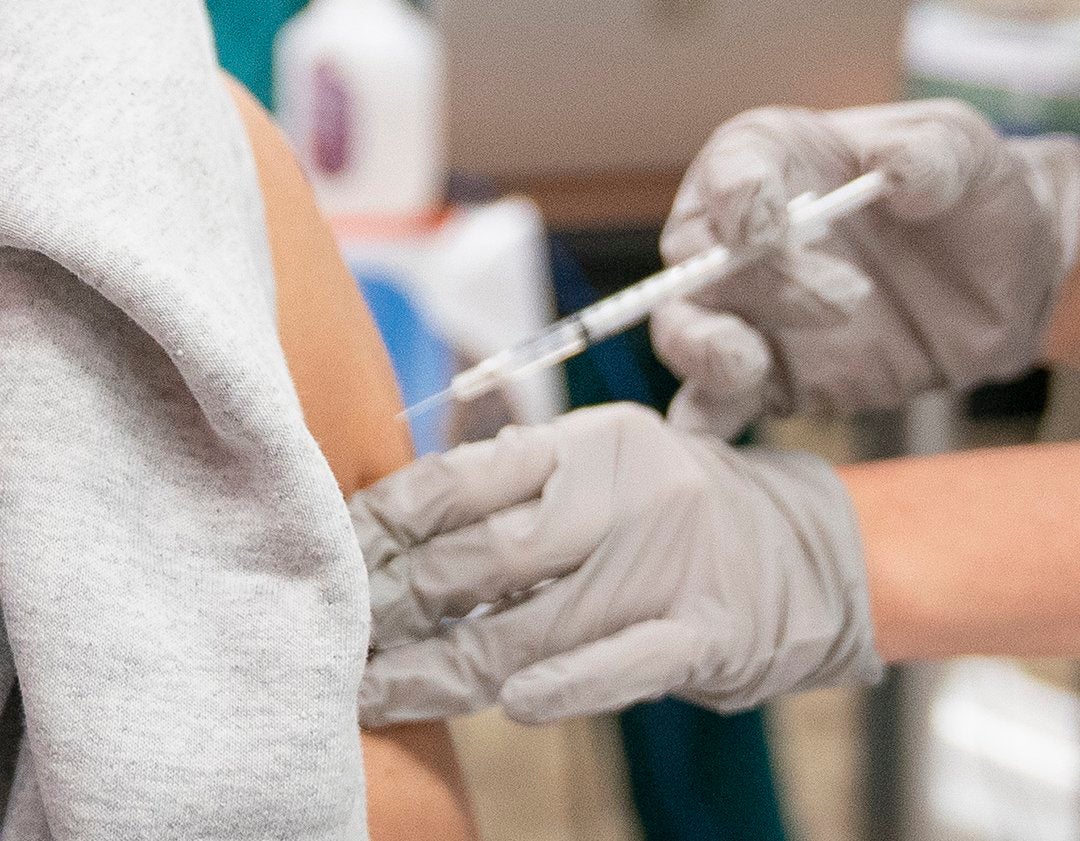While vaccinations with the three COVID-19 vaccines are now widely available, a sizable number of people say they are not planning to get the vaccination due to fears of the side effects.
Health officials, however, encourage Americans to get the vaccination. They argue the vaccinations are effective and offer a means of ending the pandemic. A CDC study released Monday found evidence that both the Pfizer and Moderna vaccines are 90 percent effective after two doses in preventing coronavirus infections in the real world. Earlier evidence of effectiveness was based on laboratory trials. Even with just one dose, the vaccines proved to be 80 percent effective, according to the Morbidity and Mortality Weekly report, which is available at the CDC website.
MORE: COVID-19 Vaccine to Be Made Available to All Georgians Aged 16 and Up
When the vaccines first became available back in the winter, Georgia’s hospitals were overrun with COVID-19 patients, and nursing homes were also experiencing what University Hospital Communications Director Rebecca Sylvester says were “clusters” of the virus. Nursing home and assisted living residents, and their care-givers, were the first to receive the vaccine.
[adrotate banner=”30″]
“The nursing homes actually did a great job of managing those clusters,” Sylvester says. “We partnered with CVS to get the vaccine into those nursing homes for patients and staff and the rate of infection has gone way down.”

Even with this seemingly good news, though, many people are still refusing the vaccine over the fear it will cause severe side effects or even give them COVID-19.
Some people have experienced frightful, though exceedingly rare, side effects. When a Virginia man suffered a terrible skin rash as a result of the vaccine, a local television station covered the story on its website and headlined the item, “Skin ‘peeled off’ in rare reaction to JOHNSON & JOHNSON….” Experts pointed out that the reaction was extremely rare, but such stories can make those who are afraid of the vaccine even more fearful.
Friends and relatives of The Augusta Press writer Debbie Reddin van Tuyll responding to her social media queries about side effects reported mild side effects.
“I had a slight soreness around the injection site,” wrote Diane Griffin of Augusta, Ga.
“Mark and I got ours yesterday. Just a sore arm for him. I felt like I was getting the flu. Chills, headache, slight nausea and fatigue. I feel better today, but tired and sore arm. Better than COVID and ICU,” wrote Denise Reddin Slaughter of Hendersonville, N.C.
[adrotate banner=”22″]
Sylvester says that many people’s distrust may come from how quickly the vaccinations made it through trials and directly into the bodies of the public.
“They are not trustful of the vetting process, thinking it was made available too fast,” she says. “A lot of these are the same people who refuse to take the flu vaccine and say they have been just fine.”
A major difference between the coronavirus vaccines and the flu vaccine is that the COVID-19 vaccines do not use the live virus. The COVID-19 vaccines rely on different techniques to spur antibodies to fight the virus should someone come in contact with it.
According to Dr. David Blake, a professor with Augusta University’s Department of Neuroscience & Regenerative Medicine, both the Moderna and Pfizer shots use messenger RNA (mRNA) coated in a fatty substance that cloaks the mRNA, allowing it to enter the body’s cells.
“We have a potent defense against mRNA, so the cloaking process helps it get into the cells, triggering the cells to produce a spike protein,” Blake says. “That protein then causes the body to generate antibodies and signals the T-cells to fight if it suspects something similar like COVID.”
Blake says the Johnson & Johnson vaccine is different in that it is created by reengineering a live adenovirus that is a variant of the common cold.
“They basically take all the nasties out of it and wipe out its ability to reproduce,” Blake explains. “The material in the vaccine then inserts itself into the cell’s DNA causing the body to respond.”
[adrotate banner=”19″]
Still, some people are emphatically opposed to taking the vaccine.
“I am totally against the vaccine, if you want my input – thanks!” says Kathleen Pratt Cox.
Blake makes the comparison between Israel and Brazil. Israel rolled out the vaccine early, and the Brazil didn’t approve the vaccines at all.
“At first, the people in Brazil said they had reached full herd immunity, and then the virus mutated, and now they are seeing some of the worst infection rates in the world,” he says.
MORE: Agencies Partner To Bring COVID Vaccinations To Homebound Seniors
In contrast, Israel worked with the pharmaceutical companies and actually got the vaccine before everyone else so that the companies could study the results on a large group. Now, Israel has seen the virus virtually wiped out.
“Yes, there can be some harsh effects from the vaccine, but they go away within 24 hours,” Blake says. “A little discomfort is far better than contracting COVID.”
Scott Hudson is the Editorial Page Editor of The Augusta Press. Reach him at scott@theaugustapress.com
[adrotate banner=”49″]












